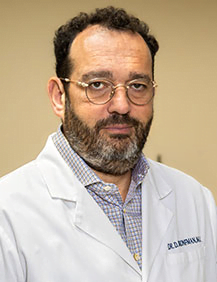The Only NYS Approved by
DOH Surgical Facility
*Same Day Appointments & Walk-Ins Welcome
The Only NYS Approved by
DOH Surgical Facility
*Same Day Appointments & Walk-Ins Welcome

Genital herpes is a sexually transmitted disease that affects both men and women. It is caused by the herpes simplex virus type 1 or type 2 (HSV-1, HSV-2). Mostly, genital herpes is caused by HSV-2.
Genital herpes is a common infection. People usually get infected through genital – genital contact or genital – oral contact with someone who is infected with the HSV virus, no matter if there are signs and symptoms. The virus is most easily spread through contact with open sores. However, the infection can be transmitted even from the skin that does not appear to have a sore. The infection can be transmitted from one person to another even without sexual intercourse.
Once infected with the virus, it will stay forever in the human body. However, outbreaks of infection will occur from time to time. Usually the first outbreak is more severe and lasts longer, when compared to other outbreaks in the future.
Signs and symptoms of genital herpes may vary. Most people have no symptoms at all, and many of them don’t even know that they are infected. When symptoms occur, one or more blisters are on the genitals or rectum. These blisters after a couple of days usually break, leaving tender sores. It will take up to 4 weeks for the sores to heal. The sores heal without scarring. Reoccurrence is possible and usually other outbreaks are less severe and shorter than the first outbreak. Uncommon or less common symptoms:
Sores, blisters, or ulcers inside or around the anus (bleeding anus) and around the buttocks and thighs
The first outbreak usually occurs within 2 weeks of having unprotected sexual intercourse with an infected person. Signs and symptoms of genital herpes include:
Outbreaks of the infection occur from time to time. When infected some people do have only few outbreaks, while others may have 4 -5 outbreaks within a year. Over the years, the outbreaks intend to be less severe and also occur less often. Women usually say that outbreaks of infection occur due to stress, menstrual periods, when being outside in the sun or even in cases when they have another disease.
Genital herpes is diagnosed by looking the sores in the genital area. Samples can also be collected form the sores for laboratory testing. In some cases it is hard to diagnose genital herpes, especially between two outbreaks. During the outbreak it is very easy to diagnose it. Blood tests that look for antibodies to HSV-1 or HSV-2 can help to detect herpes infection in people without symptoms or between outbreaks.
This infection cannot be cured. The virus stays forever in the human body but out brakes of the infection with signs and symptoms occur from time to time. Treatment of genital herpes requires the use of antiviral drugs like Acyclovir, Valacyclovir or Famcyclovir. These antiviral drugs only help ease the signs and symptoms of the infection, but also they do shorten the outbreaks. Treatment might be needed only in cases when the signs and symptoms appear. However, in some cases your doctor might prescribe you antiviral drugs to take on a regular basis in order to try to stop possible outbreaks in the future.
During the infection outbreak it is very important to keep the infection are dry and clean, not to touch it, avoid sexual contact until the sores are healed, wash the hands after contact, etc.
Genital herpes infection usually does not cause serious health problems. However, in people with immune system deficiency, like people with HIV, the outbreaks can be severe and last longer.
Like any other sexually transmitted disease the most important thing is to practice safe sex. Condoms are a good protection against STD. Don’t change sexual partners often and have sexual intercourse with someone you trust. If you or your partner is infected and have the signs and symptoms of the infection avoid having sexual intercourse for some weeks until the sores are healed.

Dmitry Bronfman, MD, is a board-certified gynecologist who specializes in all aspects of contemporary women’s health, preventive medicine, pelvic pain, minimally invasive and robotic surgery, and general, adolescent, and menopausal gynecology.
Brooklyn Abortion Clinic